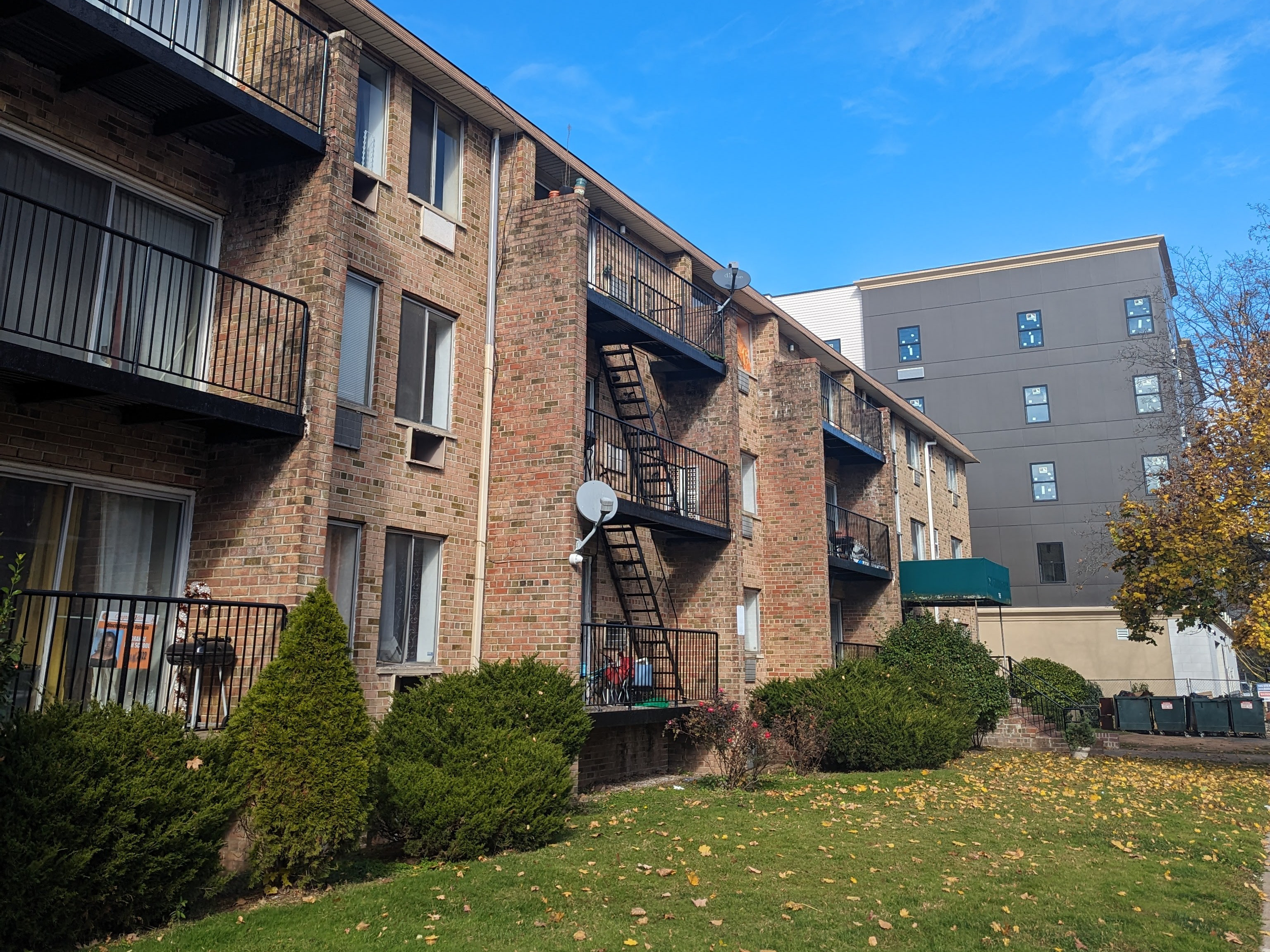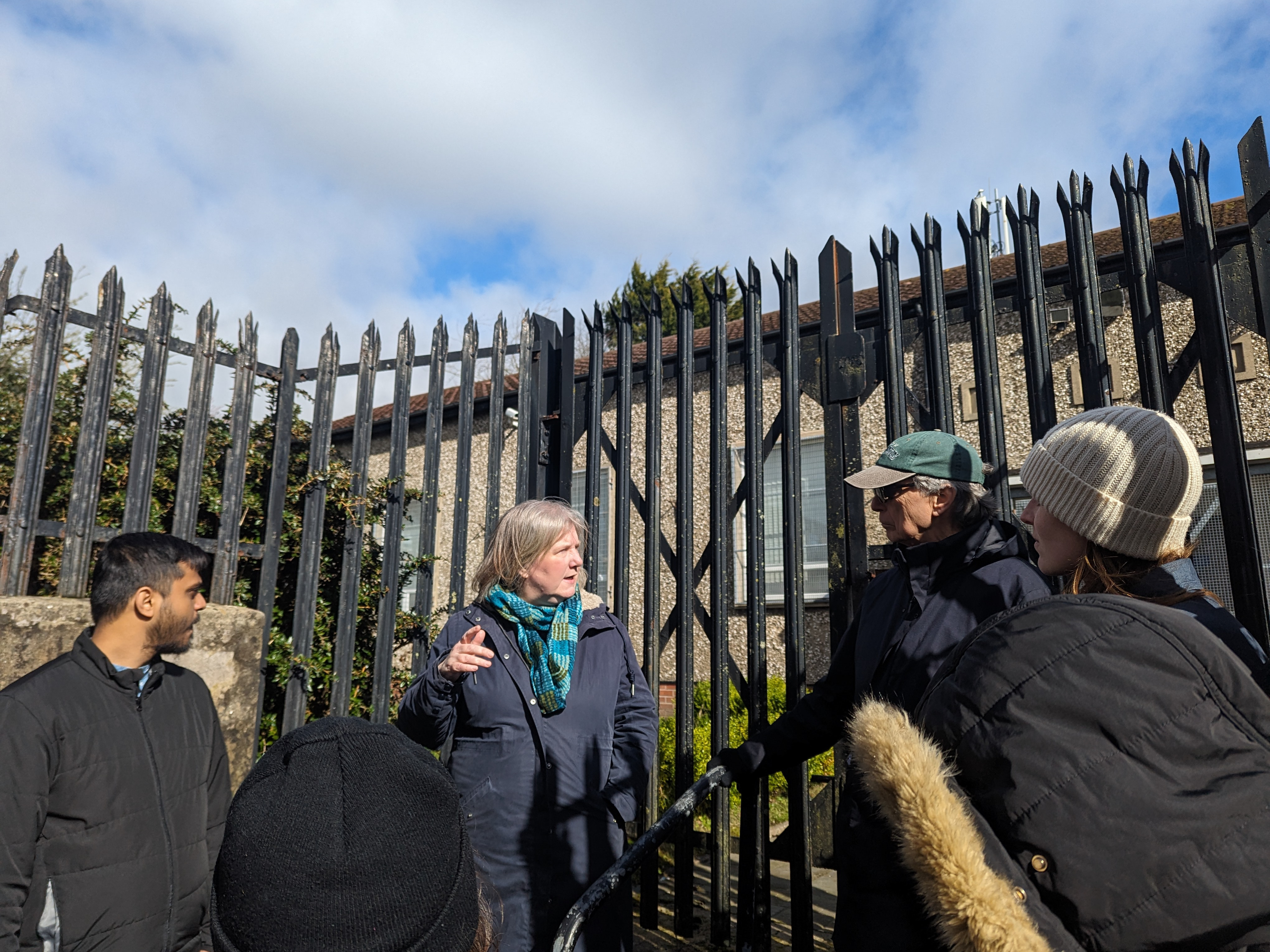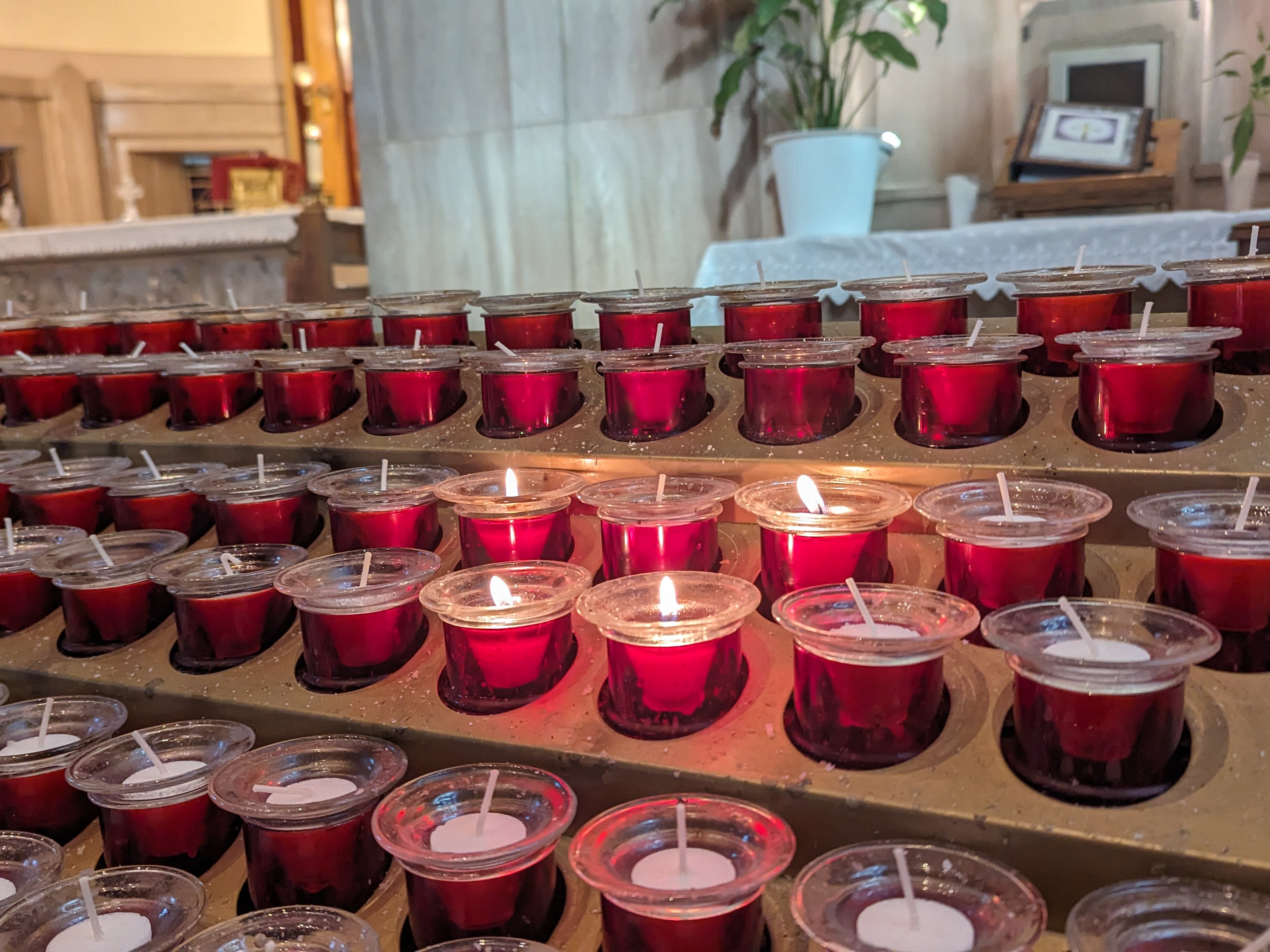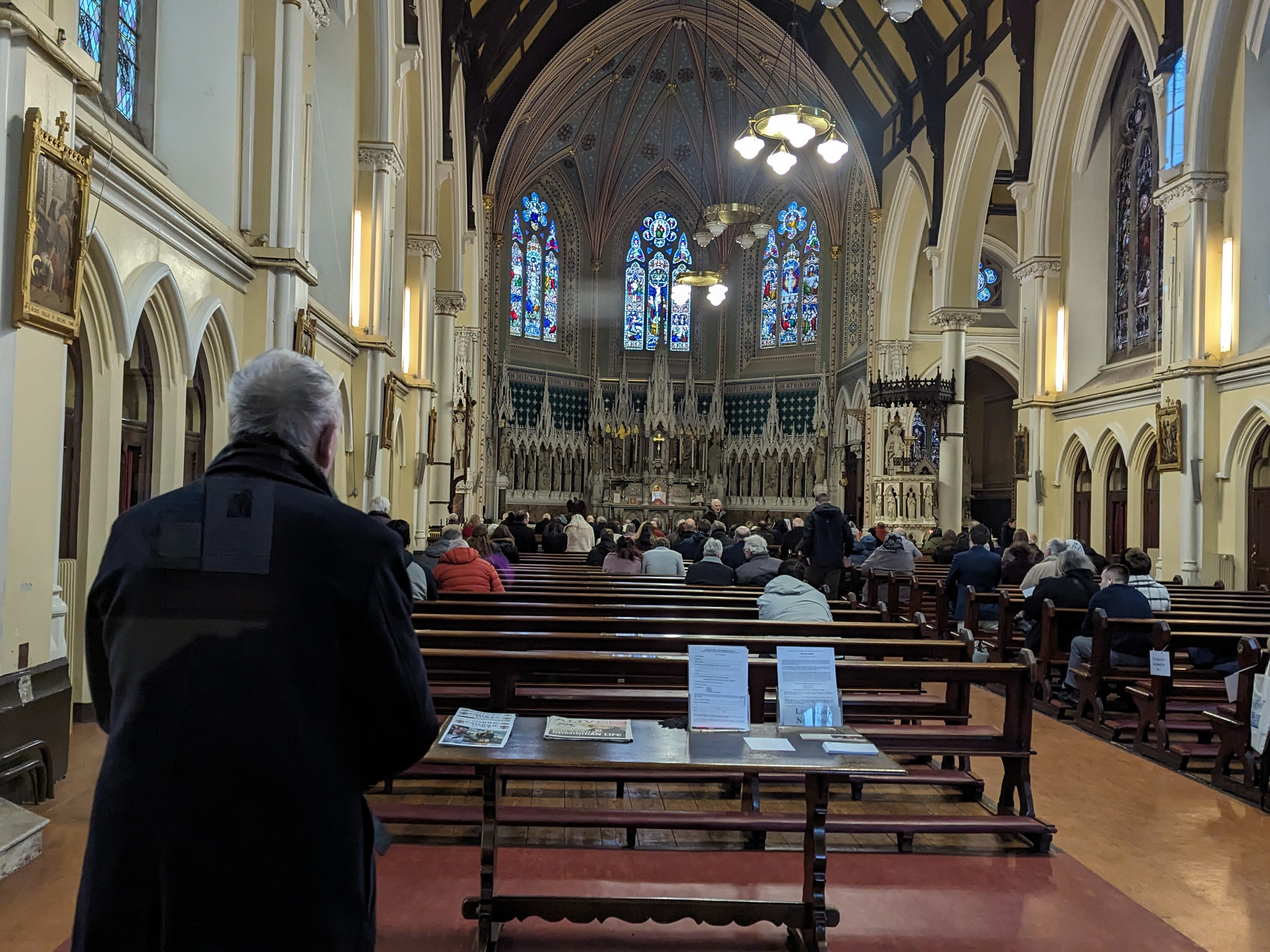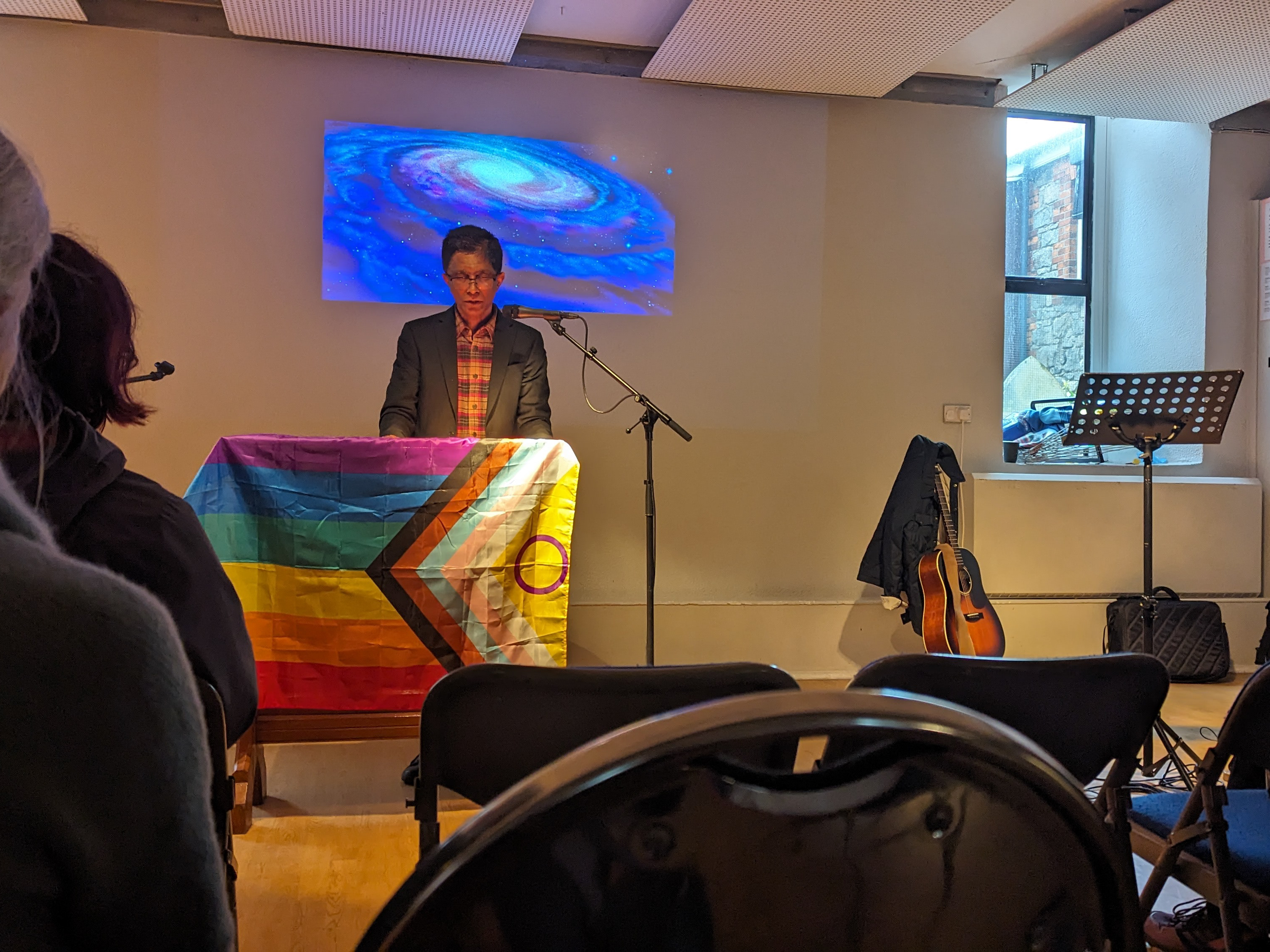As Astoria’s Traffic Deaths Rose, a Redditor Formed a Movement
By Daniel O'Connor
December 11, 2023
NEW YORK --- Biking through Astoria, Queens on a late summer night, Alex Duncan burned through roughly 20 sticks of sidewalk chalk.
Stopping every few blocks, he crouched by the iconic green pavement of the bike lanes and scrawled a message for his neighbors to see the next morning.
“Astoria - Demand daylighting and pedestrian safety - Tonight 7PM”
His independently-organized sidewalk campaign — pushing locals to attend a Department of Transportation community workshop — was extensive, covering much of Long Island City and Astoria’s commuter corridors.
A much bigger campaign was happening online.
Better known by his Reddit pseudonym “Miser,” Duncan founded the MicromobilityNYC community in September 2020 and quickly found an audience. “Micromobility” advocates push for city planning based around small vehicles like scooters and bikes rather than cars. With over 14,400 members, the subreddit became a forum for New York’s cyclists and other advocates for transit and pedestrian infrastructure.
The community has just one rule: “Don’t be an idiot.”
Duncan used chalk to advertise the meeting across the neighborhood, including at subway stops. (Courtesy of Alex Duncan)
Duncan is not a professional city planner; he said his experiences in New York’s streets inspired his turn to community organizing. Traveling the bike lanes began as a pandemic-era hobby — his micro-mobile of choice was a scooter at the time — and he found that the neighborhood of over 100,000 people had just two major protected bike lanes, both running north and south.
Without robust east-west bike infrastructure, Astoria’s bike network forces bikes and other small vehicles to share lanes with cars, trucks and motorcycles — of which there are many, as Astoria is a terminal for two major bridges across the East River. This turned his attention to the city’s need for bike lanes.
“That kind of was a big awakening for me,” he said. “And I decided I wanted to do something about it.”
With frequent posts on local planning debates and community organizing, Duncan’s growing network of online hobby-activists spent years focusing on city-wide issues and advocating for pedestrian and cyclist safety in neighborhoods across the five boroughs.
Then, a series of tragedies struck in Duncan’s neighborhood.
In January, Astorian Tamara Chuchi Kao, 62, was killed when a cement truck hit her Citi bike.
Months later, 16-year-old Jaydin McLaurin was killed in a hit-and-run, also while riding a Citi bike.
But for Duncan, the biggest catalyst for activism was the killing of Dolma Naadhun, a 7-year-old girl fatally struck by an SUV whose driver ran a stop sign.
So far this year, New York City saw at least 212 people killed by traffic, including 26 cyclists. By October, 2023 was on track to become the deadliest year to ride a bike in the city since 1999, according to non-profit watchdog Transportation Alternatives.
With the spike in deaths hitting close to home, Miser put his platform to work.
Starting in the spring, Duncan began attending meetings of the 114th Precinct Community Council and Queens Community Board 1, summarizing them for followers. He created a video explaining “daylighting,” the practice of eliminating parking near crosswalks to increase visibility. From a child's height, parking close to the crosswalk can make it difficult to know if a car is coming.
In the video, he compared the intersection where Naadhun was killed with a typical intersection in Hoboken, New Jersey, a similarly dense city that uses daylighting, and which has not reported a single traffic death since 2018. His frequent posts about daylighting got Duncan banned from the r/Astoria Reddit community for “spamming,” pushing his advocacy onto his own growing subreddit.
“There wasn’t really a lot of advocacy that was targeting the average person and targeting, like, the hearts and minds and the general understanding of these issues,” he said. “So I figured I would do it.”
“That’s probably hubris,” he added, laughing. “But it turned out to actually work.”
Duncan credits his advocacy work with pushing the DOT to institute daylighting on the block where Naadhun was struck, but he wanted an opportunity to push for more systemic street design changes, like universal daylighting and pedestrian streets.
When local elected officials announced a DOT workshop, voicing support for a new east-west protected bike lane in Astoria, Duncan jumped at the chance to voice his views.
He advertised the meeting heavily on Reddit — both his Micromobility community and, with the help of others, the Astoria neighborhood group — persuading like-minded Astorians to show up not only to voice support for the newly proposed bike lane, but to push for more radical street design changes.
“What we actually need is fundamental street redesign,” he said. “That’s what actually makes streets safer.”
Locals filled the Boys and Girls Club to attend the meeting.
On the night of the DOT workshop, hundreds filed into Astoria’s Boys’ and Girls’ Club.
The standing-room-only meeting space filled with local advocates and neighbors, most of them expressing enthusiastic support for the new bike lane — and for much more drastic street changes.
Lyn Nevins, not a die-hard cyclist, showed up after seeing Miser’s Reddit posts. She, too, wanted to push for more than a bike lane.
“My personal main focus is more on pedestrian safety,” she said, adding she’s hypervigilant of road conditions in Astoria.
“This should not be normalized,” she said.
Nevins was not alone in advocating beyond bikes.
As the DOT wrapped up their presentations and shifted the crowd towards discussion tables, the September 14 meeting quickly evolved into a no-holds-barred re-evaluation of Astoria’s streetscape.
Dozens posted sticky notes on detailed maps of the neighborhood, making planning suggestions based on their everyday experiences with the street.
Area residents noted their concerns with the streetscape of Astoria at tables led by DOT officials.
The aftermath of the meeting at one of the nine tables.
Local parent Alice Goodman, who attended, said she has always seen cars as a danger to public space.
“We hurt each other in them and we disassociate — it’s like a gun,” she said. “I don’t get it and I don’t want it.”
Goodman said finding Duncan’s Reddit posts made her feel understood.
“You think you don’t have a community and you think you’re removed from how we’ve designed our entire society,” she said. “And then you stumble upon Miser, and you are no longer isolated.”
Despite the support of local politicians and many residents, street redesign in New York has seen steep opposition. In nearby Greenpoint, Brooklyn, the influential Broadway Stages company pushed back against a proposed narrowing of McGuinness Boulevard to protect the flow of trucks to their business. After the company built a well-connected campaign against the redesign, the Adams administration watered down its original plan.
Resistance to the bike lane in Astoria remained sparse, and Duncan said he believed education would win the public over to more significant street redesigns.
“This stuff is very popular once people get to know what it is,” he said. “Trying to get people who don’t understand the issue to care about why we need to make the city better so that 7-year-olds aren’t killed is a very frustrating enterprise sometimes.”
The DOT workshop was just the first outreach step in a process that often takes years before any green paint hits the road.
Duncan said he was optimistic community support would continue.
“Astoria’s really ready for a much more aggressive plan than one street,” he said. “We need way more work being done.”
